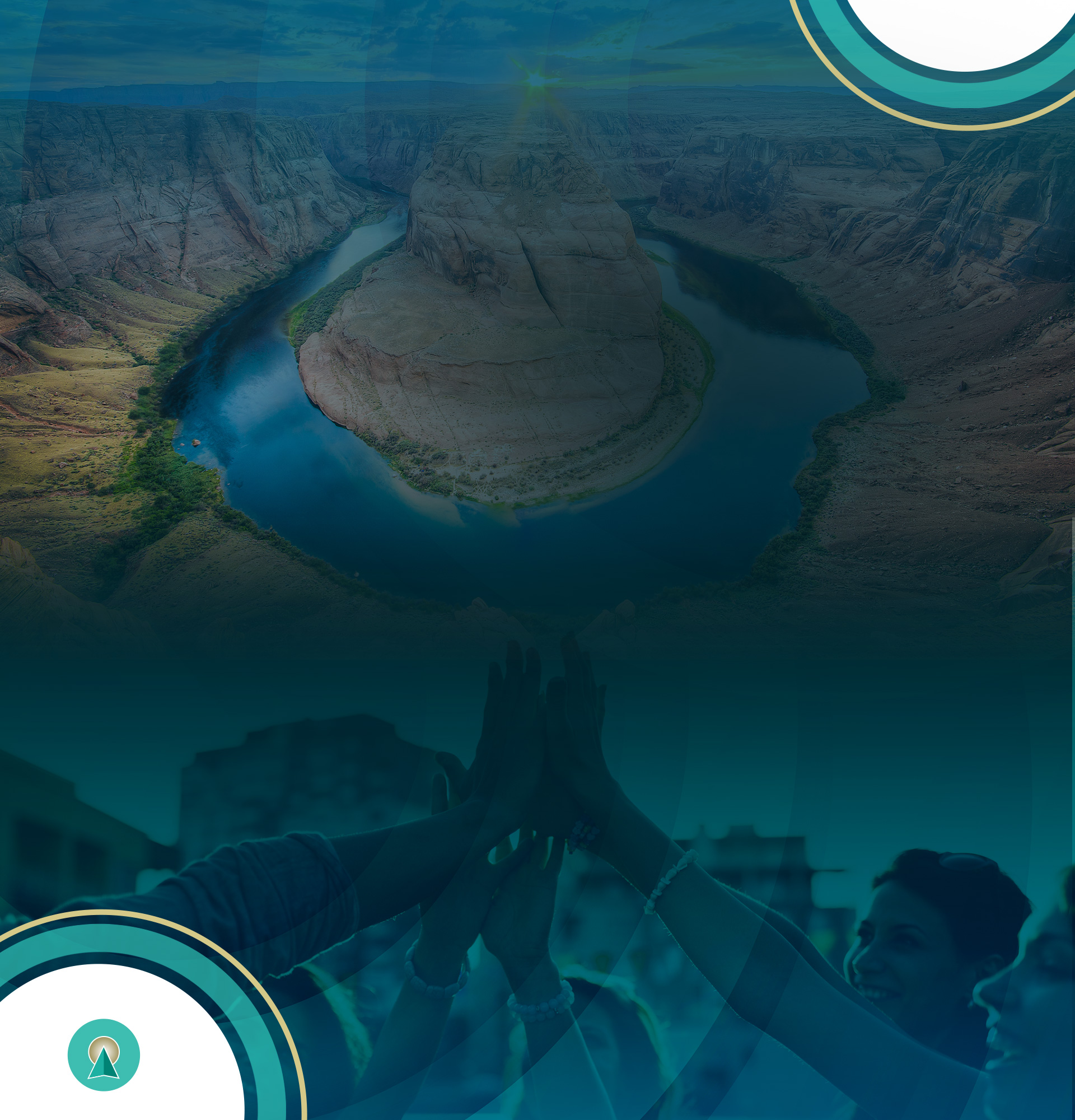

Working To Make Your Recovery Affordable By Accepting Most Insurances
Do not be discouraged if you are not seeing your insurance provider listed on our website. We take many types of insurance! Call Today: (844) 292-5010
-
 In-Network: BCBS
In-Network: BCBS -
 In-Network: Aetna
In-Network: Aetna -
 In-Network: Tricare
In-Network: Tricare -
 In-Network: Cigna
In-Network: Cigna -
 Proudly Caring for Veterans
Proudly Caring for Veterans -
 In-Network: Carelon
In-Network: Carelon -
 In-Network: MultiPlan
In-Network: MultiPlan -
 In-Network: HMC
In-Network: HMC
Opioid Addiction Treatment in Prescott, AZ
Call Our Arizona Opioid Treatment Center Today
.2106220859550.jpg)
One of the most dangerous substances is also one of the most widespread in the country — opioids. Millions of opioid prescriptions are written every year in America due to the fact that these drugs were initially advertised as safe and non-addictive. Only recent studies have proved otherwise. Now medical providers are hesitant to end prescriptions due to opioid withdrawal or because they do not have a useful alternative to offer their patients.
At Decision Point Center, we are here to help combat the opioid epidemic by offering comprehensive and compassionate opioid rehabilitation treatments, therapies, and programs.
Need help overcoming opioid addiction in Prescott? Call (844) 292-5010 to speak with our Arizona opioid rehab specialists.
On This Page:
- What Are Opioids?
- What to Do During an Opioid Overdose
- Signs of Opioid Addiction
- What Are the Benefits of Overcoming an Opioid Addiction?
- What Sets Our Rehab Center Apart from the Rest?
Although prescription opioids—or prescribed painkillers—has helped people with managing their pain, they have also resulted in a national epidemic that spans several decades. According to the U.S. Department of Health and Human Services (HHS), two million people had an opioid use disorder in 2018 and an estimated 130 deaths occur everyday from opioid-related drug overdoses.
Opioids are made from the opium poppy plant. In addition, semi-synthetic opioids derived from opium and other man-made compounds that possess a similar chemical structure, while synthetic opioids (e.g. fentanyl) are completely man-made in pharmaceutical labs.
Common types of opioids include:
- Codeine
- Oxycodone
- Hydrocodone
- Morphine
- Fentanyl
- Hydromorphone
- Meperidine
Many opioid painkillers are more commonly known by their brand names, such as:
An opioid overdose is a serious medical emergency that requires immediate attention. Here are some steps you can take if you suspect someone is experiencing an opioid overdose:
- Call for emergency medical help: If you suspect that someone is experiencing an opioid overdose, call 911 or your local emergency number immediately. It is essential to get professional medical help as soon as possible to increase the chances of survival.
- Administer naloxone: If you have access to naloxone, an opioid overdose reversal medication, administer it as soon as possible. Naloxone can quickly reverse the effects of opioids and help prevent a fatal overdose.
- Stay with the person: Stay with the person and monitor their breathing and other vital signs. If the person stops breathing, perform CPR until medical help arrives.
- Provide basic first aid: If the person vomits, roll them onto their side to prevent choking. You can also use a cool, damp cloth to help cool them down if they are sweating or experiencing a fever.
- Stay calm and reassure the person: An opioid overdose can be a frightening experience, and the person may be confused, disoriented, or scared. Stay calm and reassure the person that help is on the way.
- Prevent future overdoses: If the person survives the overdose, encourage them to seek treatment for their addiction to prevent future overdoses. Provide them with information about addiction treatment programs and support groups.
All opioids are depressants that affects the central nervous system by slowing automatic processes like brain activity and even breathing, making users calm and drowsy. While the main purpose of taking prescribed opioids is to relieve the user from pain, the high that accompanies certain doses of these drugs has led to abuse, addiction, overdoses, and deaths.
Common signs of opioid addiction include:
- Taking more opioids than the amount prescribed by your doctor
- Crushing pills to ingest or snort them
- Track marks from injecting opioids
- Slurred speech
- Unable to keep your head upright
- Acting in a sedated manner
- Slow movement
Opioid addiction is a serious and complex condition that can have devastating effects on a person's life. However, with the right treatment and support, it is possible to overcome opioid addiction and experience a range of benefits, including:
- Improved physical health: Opioid addiction can take a toll on a person's physical health, causing a range of issues such as respiratory problems, digestive issues, and chronic pain. By overcoming opioid addiction, a person can experience significant improvements in their physical health, including better sleep, improved appetite, and reduced risk of health complications.
- Better mental health: Opioid addiction can also have a significant impact on a person's mental health, leading to symptoms such as anxiety, depression, and mood swings. By getting treatment and support to overcome opioid addiction, a person can experience improvements in their mental health, including better mood, reduced anxiety, and greater emotional stability.
- Improved relationships: Addiction can strain relationships with family, friends, and loved ones. Overcoming opioid addiction can help repair these relationships and build new ones based on honesty, trust, and mutual support. It can also help a person establish healthier boundaries and improve communication skills.
- Increased self-esteem: Addiction can take a toll on a person's self-esteem, causing feelings of shame, guilt, and worthlessness. Overcoming opioid addiction can help a person regain their sense of self-worth and confidence, and provide them with a sense of accomplishment and pride.
- Financial stability: Addiction can also take a toll on a person's financial stability, causing them to spend large amounts of money on drugs and related expenses. By overcoming opioid addiction, a person can save money and establish a more stable financial future.
- Ability to pursue personal goals: Addiction can often hold a person back from pursuing their personal goals and aspirations. Overcoming opioid addiction can provide a person with the clarity, focus, and motivation to pursue their passions and achieve their goals.
- We never shame our patients for their addictions.
- We have dedicated therapists on staff.
- We can provide programs to ensure you reach sobriety
Our team at Decision Point Center are ready to help you through this terrible time. Our Arizona opiate rehab program is equipped to help anyone that is looking for a better life. With multiple years of success, we are ready to embark this journey with you.
Schedule an Appointment & Learn How We Can Help
The intake process gives our professional staff a chance to learn about the root of your addiction, the mental health issues you have to deal with, and your home life, giving us enough information to develop the most effective treatment plan. We provide residential inpatient treatment along with a wide variety of therapeutic services and programs to offer you a comprehensive treatment plan to help you overcome addiction and get your life back on the right path.
Frequently Asked Questions
How can I recognize opioid withdrawal symptoms?
Opioid withdrawal symptoms can be extremely uncomfortable and include muscle aches, sweating, chills, nausea, vomiting, diarrhea, anxiety, and insomnia. The severity of withdrawal varies depending on the type of opioid used, the length of time it was used, and the individual's overall health. Decision Point Center provides medically supervised detoxification to manage these symptoms safely and effectively. Our medical team can administer medications to alleviate discomfort and monitor your progress closely. We understand that withdrawal can be a significant barrier to treatment, and we are committed to making the process as comfortable and safe as possible. We also utilize MAT to help with post detox cravings.
How long does the acute physical withdrawal phase from opioids typically last?
For short-acting opioids, acute withdrawal usually starts within 8–24 hours and lasts 4–10 days. For long-acting opioids, withdrawal may start later but can last 10–20 days. Medically-supervised detox manages these symptoms to ensure safety and comfort.
How long should I expect to stay in opioid addiction treatment?
While detox is short, comprehensive therapeutic treatment often lasts 30 to 90 days in residential care, followed by several months to over a year of sustained outpatient care, MAT, and aftercare. Remaining in treatment for a sufficient duration is a key predictor of success.
What happens if I relapse after completing a treatment program?
Relapse is common in the recovery process of any chronic disease and is not a sign of failure. A relapse should be viewed as a signal to immediately adjust the treatment plan. The next step is to re-engage with support, return to intensive therapy, or seek a higher level of care to stabilize quickly and prevent a full return to use.
Does Decision Point Center offer detoxification services?
Yes, our secure inpatient program provides medically supervised detoxification to manage withdrawal symptoms safely and comfortably.
What happens after I complete the treatment program?
Decision Point Center offers robust aftercare programs, including alumni groups and ongoing support services, to help you maintain long-term sobriety after discharge.
Can I continue working while attending outpatient treatment?
Yes, outpatient programs are designed to accommodate your work schedule. We offer flexible scheduling options, including evening and weekend programs, to minimize disruption to your work life.
Find Hope and Healing at Decision Point Center
At Decision Point Center, we are committed to helping individuals in Prescott, Arizona, overcome opioid addiction and reclaim their lives. We offer a comprehensive range of treatment programs and compassionate support to guide you towards lasting recovery.
If you or a loved one is struggling with opioid addiction in Prescott, Decision Point Center is here to help. We understand the challenges you face and are committed to providing compassionate and effective treatment. Contact us today to learn more about our program and begin your journey to recovery. Remember, recovery is possible, and hope is within reach.
Call (844) 292-5010 or contact us online today to schedule an appointment and learn more about opioid addiction treatment in Prescott.
Recommended Reading

Real Clients. Real Recoveries.
-
“Thank you for helping me navigate through one of the most difficult times in my life. I really attribute my experience while in your care to saving my life and career.”- Phil O.
-
“Doug and Wade really helped me and my loved ones through a tough time.”- J.C.
-
“Steve in admissions was extremely helpful for our family as we tried to choose a program recently.”- Paula A.
-
“Decision Point was different from the beginning. A team approach from professionals who care.”- Candace
-
“Thank you for helping me be a better person. Doug and Wade really helped me and my loved ones through a tough time.”- JD
-
“The moment I was in their hands, my transformation began. They actually cared. They actually WANTED to help me. I wasn't just another paycheck to them. They asked questions. They made a plan for me. And they followed it to the T.”- Amber B.
-
“THIS MAN MOVED MOUNTAINS to literally help save her!”- Corin C.
-
This facility deserves a special recognition. They have been around for years but the services they provide and the recovery that comes out of their facility, only seem to grow over the years. I have worked with Stephen from the admissions department and he has always gone above and beyond to make sure clients feel comfortable and get the care they need. I definitely recommend Decision Point Center!!!!- Ashley B.

We Understand You May Have Questions
Let Us Provide You With Answer
-
How Does Decision Point Determine My Treatment Plan?You are unique. Our commitment to, “You-based” treatment is at the forefront of what we do. Through one of the most comprehensive assessments in the treatment world today, we create, tweak, and refine your plan to provide a treatment experience uniquely tailored to your strengths, weaknesses and condition.
-
What Is Failure To Launch And How Do You Treat It?Failure to launch refers to a young person who is unable to leave the protection of the parental home to begin living independently. Whether young people succumb to substance misuse and lose the ability to focus and work effectively, or if they are self-medicating to overcome underlying mental health problems such as depression and anxiety, failure to launch is often the result of substance abuse. Decision Point assists with identity achievement, mental health disorders, functional relationship building, educational and career counseling services, and the trauma often found in young people suffering from failure to launch.
-
How Do I Know if I'm an Addict?At Decision Point we avoid labels and embrace empowerment. With our comprehensive assessments, clinical expertise, and varying levels and lengths of treatment we determine which route is best for your unique needs.
-
Is the Treatment Facility Licensed and Accredited?Decision Point is licensed as a Behavioral Health Residential Facility by the Arizona Department of Health Services. We are also accredited by The Joint Commission. These standards are measured to be the target for quality and safety in behavioral health care. We are also a member of the National Association of Addiction Treatment Providers.



Meet Our Dedicated Team
-
 Dr. Terry Vaughan Medical Director, Psychiatrist
Dr. Terry Vaughan Medical Director, Psychiatrist -
 Maureen "Mo" Michael, LPC, ICGC Clinical Director
Maureen "Mo" Michael, LPC, ICGC Clinical Director -
 Jill White Assistant Clinical Director
Jill White Assistant Clinical Director -
 Heather Crawford Director of Medical Services
Heather Crawford Director of Medical Services -
 Deborah Pallett, P.A. Physician Assistant
Deborah Pallett, P.A. Physician Assistant -
 Michael A. Frost Detox Practitioner
Michael A. Frost Detox Practitioner -
 Dr. Julia L. Summers, LPC DBT Therapist
Dr. Julia L. Summers, LPC DBT Therapist -
 Douglas Winter MS, LAC, LIAC, CSAT Lead Clinician
Douglas Winter MS, LAC, LIAC, CSAT Lead Clinician -
 Troy Trout Outdoor Activity Coordinator
Troy Trout Outdoor Activity Coordinator




















